Mobilizing Cities Behind the SDGs – The Mayors’ Meet
Goal 11 : Make Cities and Human Settlements inclusive, safe, resilient and sustainable
The Millennium Development Goals (MDGs) adopted by UN member states in 2000 have successfully focused world attention and action on ending extreme poverty in all its forms. The fifteen-year MDG period will be completed at the end of 2015. Participants at the Rio+20 Summit in June 2012 resolved to finish the job of ending extreme poverty and hunger as a matter of urgency, and to place poverty reduction in the broader context of sustainable development.
Well-crafted Sustainable Development Goals (SDGs) for the period 2015 to 2030 will help guide the public’s understanding of complex sustainable development challenges, inspire public and private action, promote integrated thinking, and foster accountability.
Urbanization will be the defining trend over the next several decades. Today, 50% of the world’s 7 billion people live in cities, and, by 2050, this will rise to 70%. Cities are home to extreme deprivation and environmental degradation with one billion people living in slums. At the same time, roughly 75% of global economic activity is urban, and as the urban population grows, so will the urban share of global GDP and investments.
This event will provide a unique opportunity for Mayors from the world’s leading cities, to meet with Ambassador Permanent Representatives to the United Nations- the key negotiators in the SDG process. The Mayors and Ambassadors will have the chance to freely discuss the potential for an SDG focused on cities. As recognized by the Open Working Group on Sustainable Development Goals, a dedicated and stand-alone goal on sustainable cities and human settlements is essential to mobilize stakeholders, promoted integrated, city-level approaches, and accelerate progress towards sustainable development, including the end of extreme poverty.
The second issue for discussion will be the role that cities can play in helping to implement the whole SDG agenda. The contours of urban economies and societies demand new forms of governance and policy making in comparison to traditional agrarian or mixed societies. Managing cities with such diversity of size, scope and character requires resilient and innovative institutions, flexible policies and a cadre of interdisciplinary professions with a wide range of skills. Many lessons can be learnt from these new approaches to policy-making and governance, which can guide the implementation of an integrated SDG agenda.
Key questions to be considered over the course of the luncheon are:
– Why is a focus on cities crucial to a successful set of sustainable development goals?
– What are cities around the world already doing to pursue integrated, sustainable development? What can we learn from this?
– Can we learn from innovative models of governance and institutions at the city level?
– How can cities help to implement the goals? How will city governments integrate the goals into their planning?
– What kinds of financing and partnerships are required to facilitate cities implementation of new SDGs?
There will be 3 keynote presentations from Mayor Eduardo Paes of Rio de Janiero, Mayor Anne Hidalgo of Paris and Mayor Bill De Blasio of New York. Professor Jeffrey Sachs will open the event.
Key Participants:
– Robert Doyle, Lord Mayor of Melbourne
– Anne Hidalgo, Mayor of Paris
– Frank Jensen, Lord Mayor of Copenhagen
– Mauricio Macri, Mayor of Buenos Aires
– James Nxumalo, Mayor of Durban
– Eduardo Paes, Mayor of Rio de Janeiro
– Jie Tang, Vice Mayor of Shenzhen
– Gustavo Petro Urrego, Mayor of Bogota
– Frank Cownie, Mayor of Des Moine
– H.E. Ambassador Delattre, PR, France
– H.E. Ambassador Hetesy, DPR, Hungary
Date and Time:
Monday 22nd September 2014 at 12:00 pm-1:45 pm.
Location:
Columbia University, New York, United States
Mayors and Ambassadors
| Mayor Anne (Ana) Hidalgo Paris, France Anne (Ana) Hidalgo is a Spanish-born French politician who is the current Mayor of Paris, the first woman to hold the office. She has been a member of the Socialist Party (PS) since 1994, previously serving as former National Secretary for Culture and Media. She was the First Deputy Mayor of Paris, under Bertrand Delanoë (March 2001–March 2014).She was elected as a Councillor in 2001 for the 15th arrondissement and ran again in the French municipal elections, 2008. She was elected Mayor of Paris at the March 2014 municipal elections. |
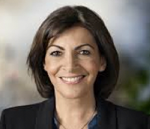 |
|
|
|
||
| Mayor Bill de Blasio New York, USA Mayor Bill de Blasio is the 109th Mayor of New York City. From his early days as a young City Hall staffer, to serving on his local school board, to his most recent position as Public Advocate for the City of New York, Bill de Blasio has spent his life fighting to ensure that every New Yorker – in every neighborhood throughout our five boroughs – gets a fair shot.Together with his wife Chirlane, Bill is the proud parent of Chiara, a college sophomore, and Dante, a high school junior. Having raised their children in Brooklyn and sent them to New York City public schools, Bill and Chirlane understand firsthand the fundamental role parents and teachers share in educating the next generation – and of the importance of providing equal educational opportunities in all neighborhoods.After graduating from NYU, Bill studied at Columbia University’s School of International and Public Affairs. He began his career in public service as a junior staffer for New York City’s first African-American mayor, David N. Dinkins, and later became an assistant for community affairs at City Hall.In 1997, Bill moved to the U.S. Department of Housing and Urban Development, working as Regional Director under then-Housing Secretary Andrew Cuomo, as New York and New Jersey’s highest-ranking official in the department. At HUD, he crisscrossed the Tri-State region, gaining a critical understanding of the diverse communities that make up the New York metropolitan area. As regional director, Bill fought for increased federal funding for affordable homes and expanded housing services for senior citizens.In 1999, Bill joined District 15’s School Board in Brooklyn, where he championed early childhood education and parental involvement and expanded pre-K programs, helping his district become the first to cap first grade class sizes.In 2000, Hillary Clinton asked Bill to manage her historic campaign for the U.S. Senate. Working at the head of a vast grassroots operation, he helped re-introduce Mrs. Clinton to New Yorkers and deliver her message about prioritizing children and families, securing her a decisive victory in a highly competitive campaign.Two years later, Bill started his service on the New York City Council, representing the diverse Brooklyn neighborhoods of Park Slope, Sunset Park, Boro Park, Carroll Gardens, Cobble Hill, Windsor Terrace, Red Hook, and Kensington.In his eight years on the City Council, Bill focused his efforts on improving public education, engaging parents, expanding affordable housing, and protecting New York’s middle-class and working poor. He wrote landmark tenants’ rights legislation to protect affordable housing and end landlord discrimination for everyday New Yorkers. Bill also was a vocal advocate for services designed to support fragile families and vulnerable children. After the tragic death of seven-year-old Nixzmary Brown in 2006, he investigated the case as Chair of the Council’s General Welfare Committee, holding four hearings examining the City’s role in fighting child abuse.In 2010, Bill was sworn in as New York City Public Advocate, the second-highest citywide elected office. As Public Advocate, Bill launched the “NYC Worst Landlords Watchlist” to publicly identify landlords who took advantage of everyday New Yorkers, pressing them to improve building maintenance and upkeep. Bill made his voice heard across our city as a forceful advocate for stronger representation and services for the millions of workers who are the foundation of New York City’s economy.As mayor, Bill is committed to making sure every child gets a great education, protecting our streets and our communities, and building a city where New Yorkers from all five boroughs can start businesses, raise their families, and afford to live in their own neighborhoods. |
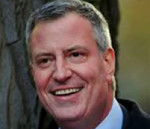 |
|
|
|
||
| Mayor Eduardo Paes Rio de Janeiro, Brazil Eduardo da Costa Paes was born on November 14th 1969 in Rio de Janeiro. He graduated from Law School at the Catholic University of Rio (PUC-RJ). The mayor is married and has two children. Eduardo Paes was elected Mayor of Rio de Janeiro in October 2008.The Mayor began his 4-year mandate on January 1st 2009 with an agenda including proposals such as a shock of urban order in the city, the end of automatic graduation for students in the municipal school system and the project to revitalize and reintegrate the port and docks area together with the old city center known as “Porto Maravilha”. He was one of the leaders of the successful bid for the 2016 Olympic Games.Eduardo Paes began his political career in 1993, only 23 years old, when he was appointed to head the municipal district of Jacarepagua and Barra. In 1996, he was elected to the Municipal Assembly with the largest number of votes among all candidates with a total of 82.418 votes.He was elected to the National Congress in 1998 with 117.164 votes. He took a leave of absence from Congress to act as the Municipal Secretary for the Environment during the administration of Mayor Cesar Maia. Four years later, a rising star of his generation, he was reelected to Congress for a second term with 186.221 votes. During his first term in Congress, Paes was chairman of the Budget Committee where he introduced key reforms. He was a member of several commissions for Tax Reform and Parliamentary Investigation on Fraud.In 2007, Eduardo Paes was invited by Sérgio Cabral, Governor of the State of Rio de Janeiro, to be the State Secretary of Tourism, Sports and Leisure. He was involved in the organization of the 2007 Pan-American Games. In October of the same year, he announced his intention to run for Mayor of Rio de Janeiro. And on January 1st 2009, Paes took office as Mayor of Rio. |
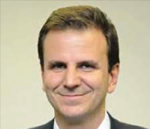 |
|
|
|
||
| Lord Mayor Frank Jensen Copenhagen, Denmark Frank Jensen was born on 28 May, 1961 in Nordjylland and holds a degree in economics. In 1987 he was elected to Folketinget (the Danish Parliament) and soon acquired several important posts. From 1994 to 2001 he was Minister of Research and after that Minister of Justice. In 2008 he left the Danish Parliament to take up a business career. In 2010 he returned to politics as Lord Mayor of the City of Copenhagen. Frank Jensen is married to Jane Frimand Pedersen and is the father of two sons. |
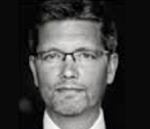 |
|
|
|
||
| Mayor James Nxumalo Durban, South Africa EThekwini Mayor, Cllr James Nxumalo was born on a farm in New Hanover where both his parents worked as farm labourers. Due to only his mother working, the family took a tough decision that all the children except for the last two were to leave school and work on the farm to augment family income. As one of the two youngest, Nxumalo was allowed to continue his education. He started his education at Ingqaza Lower Primary School, walking some 10kms to get to school each day. He also attended Bhekamatshe Community Primary School, Imbaliyezwe Lower Primary School, then moved to Fredville Higher Primary School and finally completed his matric at Siphesihle High School at Inchanga. Whilst at high school he got involved in politics and worked in the structures of the United Democratic Front (UDF) in the 1980s. In 1990, he joined the ANC Youth League, the ANC and the South African Communist Party. During that year he was employed as a labourer at a chicken factory & because the working conditions there were deplorable, he organised workers to join trade unions as well as the ANC and SACP. He is presently the provincial Chairman of the SACP in KwaZulu-Natal.He holds several educational certificates, including Local Government Development and Management, Project Management, Conflict Resolution, Advanced Certificate in Public and Development Management as well as Executive Leadership Development.Mayor Nxumalo has vast experience in local government. He was elected Councillor and member of the Executive Committee of the then Outer West Local Council in 1996, reelected Councilor for the eThekwini Municipality in 2000 and became Speaker of the Municipality in 2005. Cllr Nxumalo was elected Mayor of eThekwini on 06 June 2011. He was recently elected Deputy Chairperson of SALGA KZN. He is SALGA’s Climate Change Champion and sits on the Inter-Ministerial Committee organising the COP 17 conference. |
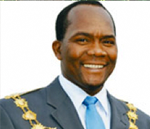 |
|
|
|
||
| Vice Mayor Jie Tang Shenzen, P.R. China Jie Tang is the Vice Mayor of Shenzhen Municipal Government of China since 2009. As the leader in charge of the work of Shenzhen Development and Reform Commission, he leads the team responsible for designing and implementing Shenzhen Emissions Trading Pilot Scheme. He is the strong advocate of Shenzhen Emissions Trading Scheme and the key person who helps Shenzhen become one of the seven ETS pilots in China.Under his leadership, Shenzhen ETS pilot has made significant progress and achieved great innovations that break through the traditional ETS practices and suit the needs of Shenzhen circumstances.Before Mr. TANG was elected as the Vice Mayor, he was the DeputyDirector-General of the Standing Committee of Shenzhen Municipal People’s Congress (MPC) from 2007 to 2009. Before that position, he was the Secretary-General of the Shenzhen Municipal Government from 2003 to 2007. Before he started his career in government in 1998, Mr. TANG was working in Quantity Economic Research Institute of Economics, Nankai University as Lecturer, Associate Professor, Deputy Dean and Dean from 1986 to 1995 and during that period he was a Fulbright scholar at University of Pennsylvania in the United States from September 1992 to October 1993.Mr. TANG obtained a Ph.D. degree in Economics at Nankai University in China in 1993 and a Master degree in Political Economics at Nankai University as well in 1986. |
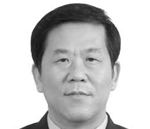 |
|
|
|
||
| Lord Mayor Robert Doyle Melbourne, Australia Robert Doyle was elected in 2008 and 2012, and is the serving Lord Mayor of Melbourne. Robert Doyle is a Principal at The Nous Group, a management consultancy business based in Melbourne and, since 2007, has been Chairman of Melbourne Health (The Royal Melbourne Hospital). Robert is President of the Lord Mayor’s Charitable Foundation, Chairman of the Royal Melbourne Hospital Foundation and a Trustee of the Shrine of Remembrance. Robert is also an Ambassador for Odyssey House, a drug and alcohol abuse rehabilitation facility, an Ambassador for SecondBite, a not-for profit organisation committed to making a positive difference by distributing fresh food to the disadvantaged and homeless, an ex-officio member of Cancer Council Victoria and an Ambassador for Field of Women, a charity raising awareness of breast cancer, an Ambassador for the White Ribbon Day Foundation, an international day for the elimination of violence against women, an Ambassador for the Juvenile Diabetes Research Foundation, the Honorary President of the Melbourne Region of the Scout Association and a board member of the Plumbing Industry Climate Action Centre (PICAC) Ltd.In 2010 Robert was made a Fellow of Monash University.Robert recently joined the United Nations Advisory Committee of Local Authorities (UNACLA) as a committee member.A Member of Victoria’s Parliament for 14 years, Robert was Leader of the Opposition and Leader of the Liberal Party for four years. He has also been Shadow Minister for Health and, in government, Parliamentary Secretary for Health. |
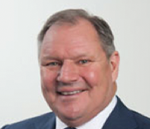 |
|
|
|
||
| H.E. Ambassador François Dellattre Permanent Representative to the United States, France Ambassador François Dellattre was appointed Ambassador of France to the United States in February 2011 after serving as Ambassador of France to Canada (2008-2011), Consul General in New York (2004-2008) and Press and Communication Director at the French Embassy in Washington, D.C. (1998-2002)A member of President Jacques Chirac’s foreign policy team (1995-1998), François Dellattre was responsible for European and trans-Atlantic defense and security matters and managing the Bosnian crisis.He also served as Deputy Director of the French Minister’s Office 92002-2004) and was a member of Foreign Minister Alain Juppé’s cabinet 91993-1995), following two years with the Strategic, Security and Disarmament Department ofthe French Foreign Ministry (1991-1993).François Dellattre was posted in Bonn at the French Embassy in Germany (1989-1991), where he was in charge of matters pertaining to the economic impact of Germany’s unification and the environment. |
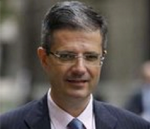 |
|
|
|
||
| H.E. Ambassador Jieyi Liu Permanent Representative to the United Nations, P.R. China Liu Jieyi, male, Han nationality, is a native of Beijing. He was born in 1954 and holds a graduate degree. He is now an Assistant Minister of Foreign Affairs. Area of responsibilities includes North America and Oceania, international organizations and conferences, arms control, translation and interpretation. From 2009 to 2013 he was Deputy Director of the International Department of the CPC Central Committee. In 2013 he was appointed the Permanent Representative to the Permanent Mission of the PRC to the United Nations. |
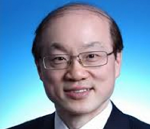 |
|
|
|
||
| Ambassador U. Joy Ogwu, OFR Permanent Representative of the Federal Republic of Nigeria to the United Nations Professor U. Joy Ogwu, OFR, serves as the first female Ambassador and Permanent Representative of the Federal Republic of Nigeria to the United Nations. She was a past Minister of Foreign Affairs of Nigeria (August 2006- May 2007). In January 2001, Joy Ogwu was appointed to lead Nigeria‘s foremost Foreign policy Think Tank, Nigerian Institute of International Affairs (NIIA) as the first woman Director General, a position she held until 2006.She received her academic training in the leading institutions in both Nigeria and the United States. Her chosen area of specialization in International relations is deeply rooted in her background in Political Science and Diplomatic History, in which areas she earned major academic awards and distinctions.A Dean’s list of honor student, she was in 1974 inducted into IOTA KAPPA CHAPTER-Rutgers University Honor Society in history, and Phi Alpha Theta-International Honor Society in History.Since 1988, Ambassador Ogwu has served variously as Presidential Delegate and Special Adviser on numerous Nigerian delegations to the United Nations General Assembly; and on the Multinational United Nations Observer Mission in South Africa (UNOMSA) that supervised the country’s transition to majority rule in 1994. She is a Member of the Board of Regents, Covenant University, Otta, Nigeria. She also serves on the Board of the Transformation, Integration and Globalization Economic Research (TIGER) Institute, Warsaw, Poland. She has served variously as External Examiner/Assessor for the Departments of Political Science at Ahmadu Bello University, Zaria, University of Ibadan and University of Abuja.In January 2002, the then Secretary-General of the United Nations, Kofi Annan invited Professor Ogwu to serve as a member of United Nations Advisory Board on Disarmament Matters. In January 2006, she was appointed to serve as Chairman of the Advisory Board for 2006, placing her as the first African woman to serve in that capacity in the annals of the United Nations.A Professor of Political Science and International Relations, she has given lectures at the Command and Staff College, Jaji, the then National War College, Abuja and the Institute for Policy and Strategic Studies (NIPPS). In her academic studies, she focused on Latin America and the dynamics of an intensified South-South relationship between Africa and Latin America. In her public service as a member of the Presidential Advisory Council on International Relations from 2000 – 2006, she made valid contributions to the development of Nigeria’s foreign policy.Her first book, Nigeria Foreign Policy: Alternative Futures published in 1986 by Macmillan Press, became a classic text for the study of Nigeria’s Foreign Policy. Among her other numerous works are Nigeria’s International Economic Relations: Dimensions of Dependence and Change (co-edited); the Nigerian Navy and the South Atlantic (monograph); the Economic Diplomacy of the Nigerian State, (co-edited and revised in 2002); New Horizons for Nigeria in World Affairs (Ed) (2005). She has published extensively in scholarly journals and books and lectured world-wide on South-South relations.Among her numerous honors, Professor Ogwu holds the National Meritorious Service Award of Officer of the Order of the Federal Republic of Nigeria (OFR). She is married to Aloysius Ogwu, M.D., and blessed with children and grand children. |
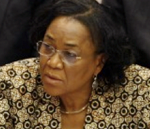 |
|
|
|
||
| H.E. Ambassador Oh Joon Permanent Representative to the United States, Korea Oh Joon is a career diplomat who has served the Republic of Korea in various posts. He has been appointed as Ambassador and Permanent Representative of Korea to the United Nations in New York. Prior to this position, he was Ambassador ofthe Republic of Korea in Singapore from 2010-13 and Deputy Minister for Multilateral and Global Affairs in the Ministry of Foreign Affairs and Trade in Seoul from 2008-10.From 2005 to 2007, he was Ambassador and Deputy Permanent Representative at the Permanent Mission of Korea to the United Nations in New York. Ambassador Oh served as Chairman of the United Nations Disarmament Commission (UNDC) for the 2006 session, in addition to representing the Republic of Korea in many meetings of the UN bodies. During the Korean Presidency of the 56th session of the UN General Assembly from 2001 to 2002, he worked in the President’s office as Deputy Chef de Cabinet.From 2003 to 2005, he was Director-General for International Organizations at the Korean Foreign Ministry. During this time, he also chaired the Missile Technology Control Regime (MTCR) from 2004 to 2005.He joined the Korean Ministry of Foreign Affairs in 1978 and has served as Special Adviser to the Foreign Minister (2007-08); Minister, ROK Embassy in Brazil (2002-2003); Deputy Director-General for Policy Planning (1999-2001); Counselor, ROK Embassy in Malaysia (1997-99); and Director, United Nations Division (1995-97). The ROK Government awarded him an Order of Service Merit twice, first the Order of Green Stripes in 1996 and the Order of Yellow Stripes in 2006.He received an M.A. in International Policy Studies from Stanford University (1991-92); a Diploma in International and Comparative Politics from the London School of Economics and Political Science (1982-83); and a B.A. in French Literature from Seoul National University (1974-78). He was a Visiting Scholar at the Hoover Institution at Stanford University (1990-91).Ambassador Oh has also been a member of the Korea Agenda Council of the World Economic Forum (WEF) since 2010. |
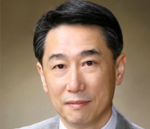 |
|
|
|
||
| Zsolt Hetesy Deputy Permanent Representative of Hungary to the UnitedNations Zsolt Hetesy serves as Deputy Permanent Representative of Hungary to the United Nations. Prior to this he served as Counter-terrorism Coordinator at the Ministry of Foreign Affairs, Budapest, Hungary (2010-2012). He also served as Director General of the Information Office (NIO) in Budapest, Hungary and of the Special Service for National Security (SSNS).From 1997–2002, Zsolt Hetesy was Legal Advisor for the Permanent Mission of Hungary to the UN, New York, USA. And from 1992–1997 he worked in the Cabinet of the Minister Directing the Civilian National Security Services, Budapest, Hungary. In 2012, he served as a Vice-President for the 17th session of the High-level Committee on South-South Coperation.Zsolt Hetesy earned a PhD from the School of Law of University of Pécs, Hungary. He has a Degree of Master of Laws (LLM) from the College of William and Mary, Marshall Wythe School of Law, Williamsburg, Virginia, USA, (Fulbright Scholarship). He also has a JD from the School of Law of Janus Pannonius University of Pécs, Hungary. He has attended Indiana University of Pennsylvania, Indiana PA, USA, as well.Zsolt Hetesy has served as Vice Chairman of the Sixth (Legal) Committee of the General Assembly and as Member of the Bureau of the ICC PrepCom. |
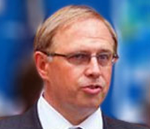 |
|
Other Participants
| Aromar Revi Co-Chair of the UNSDSN Thematic Group on Sustainable Cities. Director, Indian Institute for Human Settlements, India Aromar Revi is the Director of the Indian Institute for Human Settlements (IIHS) – India’s first prospective National University for Research and Innovation to address challenges of urbanisation through an integrated programme of education, research, consulting and advisory services.He has been a senior advisor to various ministries of the Government of India, consulted with a wide range of UN, multilateral, bilateral development and private sector institutions and works on economic, environmental and social change at global, regional and urban scales.Aromar has led over a hundred major research, consulting and implementation assignments in India and abroad; helped structure, design and review development investments in excess of $4 billion; worked on three of the world’s ten largest cities, with communities across twenty-five of India’s twenty-eight states apart from multiple international projects in half a dozen countries.He is also one of South Asia’s leading disaster mitigation and management experts and has led emergency teams to assess, plan and execute recovery and rehabilitation programmes for ten major earthquake, cyclone, surge and flood events affecting over five million people.Aromar is considered a leading expert on Global Environmental Change especially on Climate Change adaptation and mitigation. He is one of the Coordinating Lead Authors for the Urban Areas section of the IPCC 5th Assessment report (2014). He also serves as a member of the Global Advisory Board for the Global Assessment of Risk report (2011). He also works on the dynamics of macro-governance and on long-range futures for India and South Asia. He is currently involved in developing India 2050, a dynamic long-range national economy-resource-demographic model for India.Aromar’s commitment to sustainable urban development in India is well illustrated by his contribution to India’s national public housing programme which now builds close to two million houses a year in rural India. He was responsible for the development of housing and urban development plans for two-thirds of India’s states in the 1990s. |
 |
|
|
|
||
| Chuan-Fu Wang President and Founder, BYD Company, P.R.China Mr. Chuan-fu Wang serves as Chairman of the Board and President of BYD Auto Co.,Ltd.Mr. Wang serves as the Chief Executive Officer and President of BYD Company Ltd. Mr. Wang is responsible for overseeing the general operation of the Byd Group and determining the business strategies for BYD. He co-founded BYD Group in February 1995 and was responsible for the overall direction and business strategies for the BYD Group. Mr. Wang served as Deputy Supervisor in the Beijing General Research Institute for Non-ferrous Metals, the PRC from September 1990 to January 1995 and the General Manager of Shenzhen Bi Ge Battery Company Limited from June 1993 to November 1994. In February 1995, he Co-founded Shenzhen BYD Battery Company Limited. Mr. Wang serves as the Chairman of BYD Electronic International Company Ltd., and has been Non-Executive Director since June 2007. He serves as the Chairman of BYD Company Limited. He has been a Director of BYD Precision since January 2003 He has been an Independent Director of Renren Inc., since June 2012. He has been Executive Director of BYD Company Ltd., since June 11, 2002. He served as Vice Supervisor in Beijing Non-Ferrous Research Institute from 1990 to 1995. Mr. Wang received the “Shenzhen Mayor’s Award of the Year” in 2004 and was selected as the “Stars of Asia” by Business Week magazine in 2003. In 2002, he was awarded the “Bauhinia Cup Outstanding Entrepreneur Award” by the Hong Kong Polytechnic University to recognize his outstanding entrepreneurship and contributions to the society. He was granted several awards, including the “Young Technology Expert in Shenzhen Award” by the Bank of China, the first prize of “Pengnian Technology Medal” and the “Pengcheng Young Creative Medal”. Recognized as a renowned entrepreneur and technology expert, Mr. Wang was awarded Star of Asia by BusinessWeek in 2003. Mr. Wang is a Senior Engineer. Mr. Wang received his Master’s Degree in Metallurgical Physical Chemistry from the Beijing General Research Institute for Non-ferrous Metals, the PRC, in 1990 and his Bachelor’s Degree in Metallurgical Physical Chemistry from Central South University of Technology (currently known as the Central South University), the PRC, in 1987. |
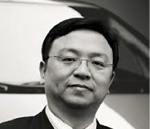 |
|
|
|
||
| Cynthia Rosenzweig Co-Chair of the UNSDSN Thematic Group on Sustainable Cities & Research Fellow, NASA Goddard Institute, USA Cynthia Rosenzweig is a Senior Research Scientist at the NASA Goddard Institute for Space Studies where she heads the Climate Impacts Group. She recently co-chaired the New York City Panel on Climate Change, a body of experts convened by the Mayor to advise the city on adaptation for its critical infrastructure. She co-led the Metropolitan East Coast Regional Assessment of the U.S. National Assessment of the Potential Consequences of Climate Variability and Change, sponsored by the U.S. Global Change Research Program. She was a Coordinating Lead Author of the IPCC Working Group II Fourth Assessment Report, and served on the IPCC Task Group on Data and Scenario Support for Impact and Climate Analysis. She is also Co-Editor of the Urban Climate Change Research Network (UCCRN) First Assessment Report on Climate Change and Cities (ARC3), the first-ever global, interdisciplinary, cross-regional, science-based assessment to address climate risks, adaptation, mitigation, and policy mechanisms relevant to cities. A recipient of a Guggenheim Fellowship, she joins impact models with climate models to project future outcomes of both land-based and urban systems under altered climate conditions. She is a Professor at Barnard College and a Senior Research Scientist at the Earth Institute at Columbia University. |
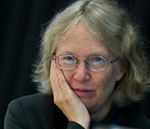 |
|
|
|
||
| David Berry Partner, Flagship Ventures, USA David Berry joined Flagship in 2005 where he focuses on innovating, entrepreneuring, and investing in new ventures in life sciences and sustainability. He is a founder of Flagship portfolio companies Joule Unlimited, Eleven Biotherapeutics (NASDAQ: EBIO), Seres Health, Pronutria, LS9 (acquired by Renewable Energy Group) and Symbiota. David has served as founding CEO of Joule, Pronutria and Seres. He currently serves on the boards of Joule, Eleven, Seres and Pronutria, Symbiota, and Avedro. He was previously a Board member of CGI Pharmaceuticals (acquired by Gilead).Prior to Flagship, David received an MD from Harvard Medical School and a PhD from the MIT Biological Engineering Division, working in the laboratories of Professors Ram Sasisekharan and Bob Langer, completing the dual degree in just over 5 years.David currently serves on the Leadership Council of the United Nations Sustainable Development Solutions Network. He is currently on the Boards of the Hackley School, the Juventas New Music Ensemble and the Boston Philharmonic Orchestra, and has served on the MIT Corporation, its Board of Trustees.David was elected a 2014 Young Global Leader by the World Economic Forum. Previously, David was named the Innovator of the Year by Technology Review, and received the prestigious Lemelson-MIT Student Prize for invention and innovation. He was also selected by the US State Department as 1 of 12 Innovators Helping to Reshape Realty. |
 |
|
|
|
||
| David Cadman President, ICLEI – Local Governments for Sustainability, Germany David Cadman is the President of ICLEI – Local Governments for Sustainability and member of the World Mayors Council on Climate Change.ICLEI is the world´s leading association of cities and local governments dedicated to sustainable development. ICLEI is a powerful movement of 12 mega-cities, 100 super- cities, 450 large cities and urban regions as well as 450 small and medium-sized cities and towns in 83 countries. ICLEI promotes local action for global sustainability and supports cities to becomesustainable, resilient, resource-efficient, biodiverse, low- carbon; to build a smart infra¬structure; and to develop an inclusive, green urban economy with the ultimate aim to achieve healthy and happy communities.As President of ICLEI, Mr. Cadman has represented Local Government internation¬ally at the United Nations Commission on Sustainable Development and the Conferences of the Parties to the UN Framework Convention on Climate Change and the UN Convention of Biological Diversity. Representing the Local Govern¬ment community, ICLEI’s municipal membership, but also as motivational speaker, he has spoken at countless international congresses and conferences worldwide.David Cadman was Councillor of the City of Vancouver BC, Canada, for three terms. He was first elected in 2002, and re elected in 2005 and 2008. He served for six years as a Councillor with the Coalition of Progressive Electors (COPE). He represented Vancouver on the Greater Vancouver Regional District and Metro Vancouver Board of Directors, serving on both the Land Use & Transportation; and Environment & Energy committees. He also served on the Translink Board of Directors where he chaired the Finance Committee. He represented Vancouver as a board member of the United Nations-initiated International Association of Peace Messenger Cities.A social and environmental activist for over 30 years, he has served as the President of the Society Promoting Environmental Conservation (SPEC). He has also served the United Nations Association at the national and international level, and was awarded the United Nations Peace Medal and United Nations 50th Anniversary Medal.Mr. Cadman was born in Montréal and grew up in Toronto. He attended the University of the South in Tennessee, USA and then moved to Geneva where he earned a Master of Arts degree in Interdisciplinary and International Develop¬ment. He studied Adult Education at the Sorbonne University in Paris, France and is fluent in French.After spending several years in Tanzania and Kenya developing literacy programs, Mr. Cadman returned to Canada in 1976 and settled in British Columbia. He worked for the Social Planning and Research Council in establishing the Community Development Institute. |
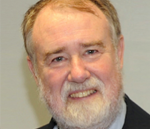 |
|
|
|
||
| Debra Roberts Director, Environmental Planning and Climate Protection Department, South Africa Debra Roberts established and heads the Environmental Planning and Climate Protection Department of eThekwini Municipality (Durban, South Africa). Her key responsibilities in this post include: overseeing the planning and protection of the city’s biodiversity and natural resource base; directing and developing the municipality’s Climate Protection Programme; and ensuring that biodiversity and climate change considerations influence all aspects of planning and development in the city.Dr. Roberts is currently a lead author of Chapter 8 (Urban Areas) and a contributing author to Chapter 12 (Africa) of Working Group II of the Intergovernmental Panel on Climate Change’s (IPCC) Fifth Assessment Report, due for release in 2014. She is also a member of the South African climate negotiating team. She sits on various international advisory bodies focused on climate change issues in cities (e.g. the Rockefeller Foundation’s Asian Cities Climate Change Resilience Network). In addition she acted as vice-chair and then chair of UN-Habitat’s HS-NET Advisory Board which oversaw the production of the 2011 “Cities and Climate Change” Global Report. Most recently she has been appointed as one of the 60 international experts convened under Royal Decree by the King of Bhutan to work on the preparation of “The New Development Paradigm Report” which will be submitted to the United Nations General Assembly in 2014. Dr. Roberts will co-chair the Ecological Sustainability Working Group of the “New Development Paradigm” International Expert Working Group. Dr. Roberts has written widely in the fields of urban open space planning, environmental management and urban climate protection and has received a number of awards for her work. |
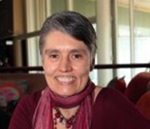 |
|
|
|
||
| Don Chen Acting Director, Ford Foundation, USA Don Chen leads the foundation’s Just Cities initiative, which supports urban development strategies to reduce poverty, expand economic opportunities and advance sustainability in cities and regions in the U.S. and developing countries. His efforts focus on shaping the delivery systems for affordable housing, community improvement, infrastructure and city and regional planning.Before joining the foundation in 2008, Don was the founder and CEO of Smart Growth America, where he led efforts to create the National Vacant Properties Campaign and Transportation for America, and managed a merger with the Growth Management Leadership Alliance. He has authored many pieces on land use, transportation, social equity and environmental policy, including “Growing Cooler: The Academic Evidence on Urban Development and Climate Change” (2008, co-author) and “The Science of Smart Growth,” which appeared in the December 2000 issue of Scientific American.Don has also served on the boards of the Funders’ Network for Smart Growth and Livable Communities, West Harlem Environmental Action, the Environmental Leadership Program and Grist magazine. He holds a master’s degree from the Yale School of Forestry and Environmental Studies and a bachelor’s degree in political science from Yale University. |
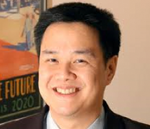 |
|
|
|
||
| Eugenie L. Birch Co-Director, Penn State University, USA Eugénie L. Birch is Lawrence C. Nussdorf Professor of Urban Research and Education, Chair of the Graduate Group in City and Regional Planning, and Co-Director of Penn IUR. She has been active in the field of city planning’s professional organizations and in academia in the United States and abroad. In 2000, she was elected to the College of Fellows of the American Institute of Certified Planners and made an honorary member of the Royal Town Planning Institute. She has been a member of the Planning Accreditation Board, serving as its chair from 2004 to 2006. She has been President of the Association of Collegiate Schools of Planning; President, Society of American City and Regional Planning History; and Co-editor, Journal of the American Planning Association.Her current projects include: co-principal investigator (with David Brownlee), Fulfilling and Livable Cities; principal investigator, Sustainability Indicators Catalog, with the Partnership for Sustainable Communities (HUD, DOT, and EPA); project director, EEB Research Digest, for the Energy Efficient Building Hub, Philadelphia (Department of Energy, 2010 to present); project director, APEC’s Energy Smart Communities Initiative Knowledge-Sharing Platform; co-convenor, Future of Transforming Cities, in partnership with the Economist Intelligence Unit and Forum for the Future; member, Research Support Team, Rebuild by Design (HUD-sponsored design competition); and co-convenor, Penn Roundtable on Anchor Institutions (which is focusing in 2013-2014 on university-based neighborhood revitalization and innovation districts). |
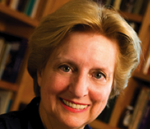 |
|
|
|
||
| Fulvio Pompeo Secretary of International and Institutional Relations, Office of the Mayor of Buenos Aires, Argentina Fulvio Pompeo’s Degree in Political Science (University of Belgrano, 1993) and Bachelor of International Relations (University of Belgrano, 1992). Also did a Postgraduate Diploma in International Relations and Political Theory (University of Westminster, London, England, 1999-2000).Currently, he is Assistant Secretary for International and Institutional Relations of the Government of the Autonomous City of Buenos Aires.He was Chief of Staff of the President’s Committee on Foreign Affairs of the Chamber of Deputies (HCDN), Ambassador and Secretary of Institutional Relations of the Ministry of Foreign Affairs, International Trade and Worship, where he was also director General of Institutional Relations.He has extensive academic experience, having served as Assistant Professor of “Comparative Politics” at the University of Belgrano; collaborated on “Archives Present,” American Journal of International Affairs, Edited by South Forum Foundation and also served as head of Institutional Relations at National University of Tres de Febrero. He is a member of the Argentine Council for International Relations (CARI) and the Malvinas Parliamentary Observatory HCDN. |
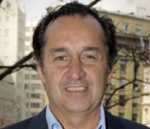 |
|
|
|
||
| Guido Schmidt-Traub Executive Director, UNSDSN, France Guido Schmidt-Traub is Executive Director of the UN Sustainable Development Solutions Network. He has served as climate change advisor to the Africa Progress Panel secretariat and was CEO of Paris-based CDC Climat Asset Management, an investment company regulated by the French financial markets regulator. From 2008-2010 Guido was Director and Partner at South Pole Carbon Asset Management in Zurich, a leading developer of greenhouse gas emission projects. Prior to managing the MDG Support Team at UNDP (2006-2008) he served as Policy Advisor and then as Associate Director of the UN Millennium Project in New York, which was tasked with developing a concrete action plan for the world to achieve the Millennium Development Goals. Earlier Guido was Partner at IndexIT Scandinavia, a private equity fund for early-stage technology companies, and consultant at McKinsey & Company in Germany. Guido holds an M.Phil. in Economics from Oxford University (Rhodes Scholar) and a Masters in physical chemistry from the Free University Berlin. He resides in Paris with his family. |
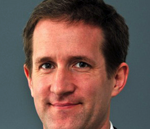 |
|
|
|
||
| Henri Proglio Chairman and CEO, EDF Energy, France Born on 29 June 1949 in Antibes (France), Henri Proglio is a graduate of the École des Hautes Études Commerciales (HEC). He joined Compagnie Générale des Eaux in 1972 and was appointed Chairman and Chief Executive Officer of Compagnie Générales d’Entreprises Automobiles (CGEA) in 1990. In 1999, he was appointed Vice President of Vivendi, Manager of Compagnie Générale des Eaux and Chief Executive Officer of Vivendi Water. He became Chairman of the Management Board of Veolia Environnement in 2000, then Chairman and Chief Executive Officer from 2003 to November 2009.Henri Proglio has been Chairman and Chief Executive Officer of EDF since 25 November 2009. He was appointed director of EDF, which was then a state-owned industrial and commercial institution (établissement public industriel et commercial – EPIC), in September 2004. Within the EDF group, he is Chairman of the Boards of Directors of EDF Energy Holdings and Transalpina di Energia. He is a director of EDF Énergies Nouvelles, EDF International (SAS) and Edison. He is also Chairman of the EDF Foundation and the Electra association. In addition, he is director of CNP Assurances, Dassault Aviation, Fomento di Contrucciones y Contratas, Natixis, Veolia Environnement and Veolia Propreté, and member of the Supervisory Board of Veolia Eau. He is deputy Chairman of the Strategic Nuclear Energy Committee, member of the French Atomic Energy Committee, the High Committee for Transparency and Information on Nuclear Safety, the French National Committee on Sectors of Vital Importance and director of the Fondation Européenne pour les Énergies de Demain. |
 |
|
|
|
||
| Holger Kuhle Manager, UNSDSN, France Holger Kuhle, seconded from GIZ, the German Federal Enterprise for International Cooperation, is working as manager within the SDSN office in Paris. He has served as component manager within the GIZ-Program for the “Support of Entrepreneurship and Innovation” in Tunisia and before as adviser for Local Economic Development within the “GIZ-Urban Development Programme in Syria” in the city of Aleppo. Within his previous engagement at the public bank for SME promotion and infrastructure in Berlin, his main tasks were to propose and conduct prospective studies, to manage pilot projects and product development in the field of urban economic development, at European, regional and local (cross-border) levels. Here he has been involved in innovative projects supported by the European Commission: the exchange of best practices and development of tools to foster technology transfer as well as microcredit in depressed urban and rural areas, methods to promote employment at local level, approaches to create cross-border regions and clusters of innovation. Holger holds a PhD in Social Sciences with focus on regional and urban development from Humboldt-University and a first degree in Political Sciences from Free University Berlin. |
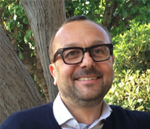 |
|
|
|
||
| Jeffrey Sachs Director, UNSDSN and Director, the Earth Institute, Columbia University, USA Jeffrey D. Sachs is a world-renowned professor of economics, leader in sustainable development, senior UN advisor, bestselling author, and syndicated columnist whose monthly newspaper columns appear in more than 80 countries. He has twice been named among Time Magazine‘s 100 most influential world leaders. He was called by the New York Times, “probably the most important economist in the world,” and by Time Magazine “the world’s best known economist.” A recent survey by The Economist ranked Professor Sachs as among the world’s three most influential living economists of the past decade.He serves as Director of The Earth Institute at Columbia University, as well as Quetelet Professor of Sustainable Development and Health Policy and Management. He is Special Advisor to United Nations Secretary-General Ban Ki-moon on the Millennium Development Goals, having held the same position under former UN Secretary-General Kofi Annan. He is co-founder and Chief Strategist of Millennium Promise Alliance, and is director of the Millennium Villages Project. He has authored several books including three New York Times bestsellers: The End of Poverty (2005), Common Wealth: Economics for a Crowded Planet (2008), The Price of Civilization (2011), and To Move the World (2013). |
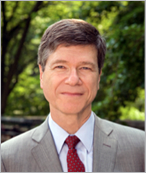 |
|
|
|
||
| Jessica Espey Manager, UNSDSN, USA Jessica is a Manager for the SDSN. Prior to joining she served as a special adviser on the post-2015 agenda within the Office of the President of Liberia, supporting the work of The High Level Panel of Eminent Persons (of which President Sirleaf was co chair) and the development of the Common African Position on the Post-2015 Agenda. For three years prior she was a senior researcher for Save the Children UK, who initially supported her work in Liberia on secondment. She has also worked as a researcher at the Overseas Development Institute (ODI) and the British Institute in Eastern Africa (BIEA). She has particular expertise in the study of inequality and gender discrimination.Jessica holds a Bachelor of Arts with Honours in Modern History from the University of Oxford and a Masters of Sciences in the Political Economy of Development from the School of Oriental and African Studies, University of London. Over the past 8 years she has lived and worked in the UK, Liberia, Kenya and Rwanda. |
 |
|
|
|
||
| Joan Clos Executive Director, UN Habitat, Kenya Dr. Joan Clos is the Executive Director of the United Nations Human Settlements Programme (UN-Habitat), at the level of Under Secretary General by the United Nations General Assembly. He has held this office since October 2010.Born in Barcelona on 29 June 1949, he is a medical doctor with a distinguished career in public service and diplomacy. He was twice elected Mayor of Barcelona, serving two terms from 1997 until 2006. He was Minister of Industry, Tourism, and Trade of Spain between 2006 and 2008. Prior to joining the United Nations, he served as the Spanish Ambassador to Turkey and Azerbaijan.He is a medicine graduate from the Universidad Autónoma de Barcelona (UAB), and specialized in Public Health and Epidemiology at the University of Edinburgh (Scotland). Dr. Joan Clos then joined the Barcelona Municipal Government as theDirector of Public Health in 1979.As a city councillor between 1983 and 1987, he earned a reputation for improving municipal management and for urban renewal projects, notably managing the renovation of downtown Barcelona’s Ciutat Vella district. From 1990 to 1994, he was the Deputy Mayor in charge of finance and budgeting, playing a key role in preparations for the 1992 Olympic Games in Barcelona.Dr. Joan Clos is also widely credited with inspiring far-reaching investment programmes for Barcelona. One of the most ambitious was the “Barcelona@22” programme, which gave the city’s dilapidated industrial zones a facelift. In 2004, one of these newly refurbished neighbourhoods near the old dockyards was chosen as the site for the second gathering of UN Habitat’s World Urban Forum, the premier global conference on cities.At the international level, in 1998 Dr. Clos was elected President of Metropolis, the international network of cities. Two years later, he was elected President of the World Association of Cities and Local Authorities (WACLAC). Between 2000 and 2007, he served as the Chairman of the United Nations Advisory Committee of Local Authorities (UNACLA). And between 1997 and 2003, he was member of the Council of European Municipalities and Regions (CEMR).Dr. Clos received a number of awards, including a gold medal from the Royal Institute of British Architects in 1999 for transforming Barcelona. In 2002, he won the UN-Habitat Scroll of Honour Award for encouraging global cooperation between local authorities and the United Nations. |
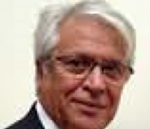 |
|
|
|
||
| John Thwaites Chairman, Monash Sustainability Institute & ClimateWorks Australia, Australia John Thwaites is a Monash Professorial Fellow and Chair of both ClimateWorks Australia and the Monash Sustainability Institute. He is a consultant at Maddocks Solicitors providing advice to the firm and its clients on climate change, water, sustainability and corporate social responsibility. John chairs the National Sustainability Council, the Australian Building Codes Board and the Australian Centre for the Moving Image. He is also a director of the Australian Green Building Council. John is a member of the Leadership Council of the Sustainable Development Solutions Network (“SDSN”) launched by the Secretary General of the UN to provide expert advice and support to various international processes working on the development of the post-2015 Sustainable Development Goals.In 2012, John was named one of the top 100 Global Sustainability Leaders by ABC Carbon and Sustainability Showcase Asia.John chairs a project with the Brotherhood of St Laurence to develop policies to assist low-income Australians cope with the impact of climate change and chaired a joint Brotherhood of St Laurence/KPMG Report on a national energy efficiency program for low income households.In 2008 -2009, John was a special adviser to the Timor-Leste Minister for Infrastructure and helped develop an Infrastructure plan for Timor-Leste. He has advised state and local governments on climate change and energy policy.John was Deputy Premier of Victoria from 1999 until his retirement in 2007. During this period he was Minister for Health, Minister for Planning, Minister for Environment, Minister for Water, Minister for Victorian Communities and Victoria’s first Minister for Climate Change. In these portfolios he was responsible for major reforms in social policy, health, environment and water. |
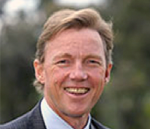 |
|
|
|
||
| Jonathan Rose President, Jonathan Rose Companies, USA Jonathan F.P. Rose’s business, public policy and not-for-profit work all focus on creating a more environmentally, socially and economically responsible world. In 1989, Mr. Rose founded Jonathan Rose Companies LLC, a multi-disciplinary real estate development, planning, consulting and investment firm, as a leading green urban solutions provider. The firm has successfully completed $1.5 billion of work. In 2005, the firm launched the nation’s first green transit oriented acquisition and redevelopment fund. The company’s mission is to repair the fabric of communities. The firm draws on its human capital, financial depth and real estate expertise to create highly integrated solutions to real estate challenges.The firm’s work touches many aspects of community health, working with cities and not-for-profits to build not only housing, but also civic, cultural, educational and infrastructure open space.A thought leader in the Smart Growth, national infrastructure, green building, and affordable housing movements, Mr. Rose is a frequent speaker and writer. His work has received widespread media attention from CNN to The New York Times and was profiled in e2, a PBS series on sustainable development. The firm’s innovative development, planning, investment, new construction, conversion and historic preservation work has won awards from a wide range of notable organizations including: the National Trust for Historic Preservation, the Natural Resources Defense Council, Global Green USA, the Urban Land Institute, the American Planning Association and the American Institute of Architects.Mr. Rose is Vice Chair of Enterprise Community Partners and is a trustee of the Natural Resources Defense Council. He also serves on the Board of the Brooklyn Academy of Music, and is an Honorary Member of the American Institute of Architects. Mr. Rose chaired the Metropolitan Transit Authority’s Blue Ribbon Sustainability Commission, which developed the nation’s first green transit plan, and was a commissioner on Governor Cuomo’s NYS 2100 Commission, tasked with identifying strategies for the long-term resilience of NewYork State’s infrastructure post-Hurricane Sandy. Mr. Rose is also a co-founder of the Garrison Institute with his wife, Diana Rose, where he founded the Climate, Mind and Behavior program. Mr. Rose graduated from Yale University in 1974 with a B.A. in Psychology and Philosophy, and received a Masters in Regional Planning from the University of Pennsylvania in 1980. |
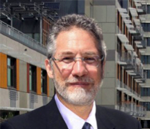 |
|
|
|
||
| Joseph Roig Secretary General of World Organization of United Cities and Local Governments, Spain Joseph Roig was born on March 23, 1950. In 1985 he became one of the founders of Metropolis – World Association of Major metropolitan areas, and was elected to the post of Secretary General of the organization in 2000. Metropolis is a metropolitan department of UCLG.Josep Roig has gained significant experience in working with different organizations and cultures of the world. His work in Metropolis provided contacts with local authorities around the world. Joseph Roig has had a great experience working with international organizations such as UN-Habitat, World Bank, the World Alliance of Cities and others. He took part in the involvement of local authorities in the work of UN-Habitat and other United Nations offices.On June 23, 2011 at the meeting of the Executive Bureau in Morocco the UCLG Committee on Constitutional Affairs presented the candidacy of Joseph Roig to the Executive Bureau and he was elected Secretary General of UCLG. |
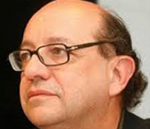 |
|
|
|
||
| Lamia Kamal-Chaoui Senior Advisor, Organization for Economic Co-operation and Development (OECD) In her current position, Mrs. Kamal-Chaoui is conducting an extensive programme of work on urban issues, focusing on city competitiveness, urban governance and local finance, infrastructure and environment, climate change and green growth, social cohesion, immigrant integration and distressed areas (www.oecd.org/gov/cities). This programme includes among others a series of more than 20 OECD Metropolitan Reviews (e.g. Milan, Madrid, Cape Town, Toronto, Stockholm, Seoul, Istanbul, Montreal, Mexico City, Guangdong, Venice, etc.), National Urban policy Reviews, thematic reports (e.g. Competitive Cities in the Global Economy (2006) and Competitive Cities and Climate Change (2009)) and a unique statistical international database of 90 functional metro-regions with 1.5 and more inhabitants.Mrs. Kamal-Chaoui animates the work of the OECD Working Party on Urban Areas, which is presently the main international forum for discussion and exchange of experience in the field of urban policy among national senior public officials. She also regularly organizes OECD international conferences in collaboration with City Mayors and is in charge of the OECD Roundtable of Mayors and Ministers on Urban Development. Previously, she had worked on regional development policies, multi-level governance and fiscal federalism, social and labour market policies, as well as in other OECD departments, where she was involved in the reviews on regulatory reform of Korea and Japan, as well as in a study on Foreign Direct Investment in China. Before joining the OECD in 1997, Lamia worked as a consultant for the Office of the French Prime Minister’s Commissariat General du Plan where she co-produced the report «Trade Policy under Imperfect Competition ». She has also had experience as a journalist for several print and broadcast media. She holds two Masters Degrees, one in Macroeconomics (University of Paris Dauphine) and one in World History (University of René Diderot, Paris). |
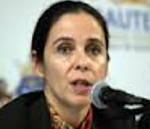 |
|
|
|
||
| Martin Mogwanja Deputy Executive Director, UNICEF, USA Mr. Mogwanja had been serving as UNICEF Representative in Pakistan since January 2007. In this capacity, he had been responsible for the overall planning, coordination and implementation of a broad range of UNICEF country programmes to improve the status of women and children in Pakistan, including a large emergency relief programme in North-Western Pakistan. He also served as the Humanitarian Coordinator in Pakistan from June 2009, in which capacity he led the UN and NGO response to the IDPs displaced in North-Western Pakistan, and later led the response to the 2010 floods emergency. Mr. Mogwanja joined UNICEF in 1977 as an Assistant Project Officer in Nairobi, Kenya. He was reassigned in May 1980 to Mbabane, Swaziland, as Liaison Officer. In November 1983, he was appointed as Programme Officer in Maseru, Lesotho and also served as Assistant Representative from August 1987 to August 1989. He served in New York from August 1989 as Senior Programme Officer in the Africa Section, Programme Division, until he was appointed in August 1994 as Deputy Regional Director for West and Central Africa in Abidjan, Côte d’Ivoire. Mr. Mogwanja served as UNICEF.Representative in the Democratic Republic of the Congo from July 1999 until December 2001, when he was transferred to serve as UNICEF Representative in Uganda. From November 2005, he also served as Humanitarian Coordinator in Uganda, leading the UN and NGO response to the displacement crisis in Northern Uganda.Mr. Mogwanja is a national of Kenya. He holds a Bachelor of Science degree in Engineering (1977), a Master’s degree in Chemical Engineering and Development Studies, and a Diploma of Membership of the Imperial College, London (1983).Mr. Mogwanja is married to Mrs. Pauline Mogwanja and they have three children. |
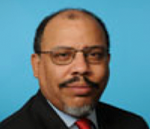 |
|
|
|
||
| Michael Berkowitz Managing Director, 100 Resilient Cities Centennial Challenge, Rockefeller Foundation, USA Since August 2013, Michael Berkowitz has been The Rockefeller Foundation’s Managing Director for its 100 Resilient Cities Centennial Challenge. 100 Resilient Cities – part of the Foundation’s $100 million commitment to build urban resilience worldwide – is an organization whose purpose is to support cities to adopt and incorporate a resilience mindset in their planning, development, and community-building so that they are prepared for a wide range of shocks and chronic stresses.Previously Michael was the global head of Operational Risk Management (ORM) at Deutsche Bank, based in London. In that capacity he oversaw the firm’s operational risk capital planning efforts, served as a primary regulatory contact and connected the myriad operational risk management efforts group-wide.Over nearly nine years at Deutsche Bank, he held various other positions including Chief Operating Officer of Corporate Security, Business Continuity (CSBC) and Operational Risk Management, where he had responsibility for budgeting, operations, and global coordination across the group’s six work streams. During this time, he also served as the head of the Bank’s Protective Intelligence unit, designed to assess and analyze security and geo-political threats to the Bank, its staff, processes and information.Prior to December 2010, he was the CSBC head in APAC. The Bank has a presence in 17 countries throughout the region with hubs in Hong Kong, Singapore, Sydney and Tokyo. Between 2005 and 2008 he had management roles for DB in Mumbai, India and New York. Until January 2005, he was Deputy Commissioner at the Office of Emergency Management in New York City. In this position he worked on major planning initiatives, including the New York City Coastal Storm, Biological Terrorism and Transit Strike contingency plans.Prior to his arrival at OEM in March 1998, he was the editor of Emergency Preparedness News, a Washington, DC-based newsletter for emergency management professionals. |
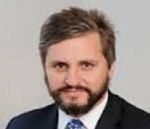 |
|
|
|
||
| Rafael Tuts Chief, Urban Environmental Planning Branch, UN Habitat, Kenya Rafael Tuts is the Coordinator of the Urban Planning and Design Branch of the United Nations Human Settlements Programme, UN-Habitat. He is based at its Headquarters in Nairobi, Kenya. His work on sustainable urban development includes a focus on spatial planning, environmental planning and climate change action planning, within the perspective of local government capacity development. In his current capacity, he is coordinating UN-Habitat’s urban planning and design portfolio in more than 30 developing countries in Africa, Asia and Latin America. This includes oversight of the Cities and Climate Change Initiative which is active in 20 countries. He is serving as UN-Habitat’s focal point for collaboration with the United Nations Environment Programme, and the United Nations Framework Convention on Climate Change. He is also coordinating UN-Habitat’s follow up on the outcomes of the Rio+20 Conference, including the Sustainable Development Goals.Mr. Tuts earlier served as Chief of the Urban Environment and Planning Branch (2008-2011) and Chief of the Training and Capacity Building Branch (2005-2008) of UN-Habitat. He also worked with the UN-Habitat’s Urban Governance Section (2000-2004) and the Global Campaign on Urban Governance, focusing on the Urban Governance Index as well as tools on participatory decision making and transparency in local governance. Prior to this, he was the first Coordinator of UN-Habitat’s Localising Agenda 21 Programme (1995-2000), focusing on urban sustainability planning in intermediate cities in Kenya, Morocco, Vietnam and Cuba. Prior to joining the United Nations, he worked as Research Fellow at the University of Nairobi and the University of Leuven (1987-1994). Mr. Tuts has a Master’s degree in Architectural Engineering from the University of Leuven, Belgium.Mr. Tuts contributed articles to several journals. He co-edited Urban Trialogues (2004), a collection of essays reflecting on visioning, action planning and co-production of urban space as a resource for sustainable development. He coordinated the publication International Migrants and the City (2005). He also co-directed Guidelines for developing eco-efficient and socially inclusive infrastructure (2011) jointly published by UN-Habitat, ESCAP, ECLAC and Columbia University. He recently oversaw the development of guidebooks on Urban Patterns for a Green Economy (2012) and Urban Planning for City Leaders (2012). Together with colleagues from the World Bank, UNEP and Cities Alliance, Mr. Tuts developed and implemented a Joint Work Programme on Cities and Climate Change, which received the World Bank Vice-President Team Award in 2011 in recognition of its efforts as a unique showcase of the positive effects of successful consensus-building in a global partnership. |
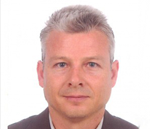 |
|
|
|
||
| Seth Schultz Director, Research, Measurement & Planning, C-40 Cities, UK Seth Schultz is the Director of Research, Measurement & Planning at C40 Cities Climate Leadership Group. In this role, Seth is responsible for organizational accountability and visibility through implementing a comprehensive and cohesive research and planning strategy. Seth works to ensure that cities accelerate and share their work on climate change issues through specific data analysis. He is also a frequent speaker about the breadth and depth of climate actions being taken by C40 Cities and their impact around the world. Prior to this role, Seth helped create the Climate Positive Development Program (CPDP) — developed in partnership with the Clinton Climate Initiative and the U.S. Green Building Council (USGBC). CPDP supports the development of large-scale urban projects striving to reduce the amount of on-site CO2 emissions to below zero. Seth’s background includes more than 15 years of experience in the environmental field. Some of his past work includes managing contracts and clients at the city, state, regional and federal level. He has managed nationwide U.S. federal contracts with EPA and NOAA and overseen research projects on emergency response work conducted at the World Trade Center cleanup, Hurricane Katrina and others. He holds a bachelor’s degree in Environmental Science from Binghamton University and oversees C40’s office in New York City. |
 |
|
“Agreement on an urban SDG in 2015 will be the first signal that the world has begun a new journey towards sustainability – one that recognizes the transformative potential of the world’s cities, especially those in the global south, to restore ecological integrity, reduce inequality and increase well-being, both for the individual and the world”.
Professor Cynthia Rosenzweig, NASA Goddard Institute and Co-Chair of SDSN Thematic Group on Sustainable Cities:
“Now home to over half the world’s population, productive, inclusive, safe, and resilient cities will lead the way to sustainable development”.
Sustainable cities and regions matter now more than ever. They hold the key to the future of our societies, our economy and planetary health. Through a series of bold and visionary actions, we can collectively grasp that future and make it real, for all people everywhere.
Today, more than half the world’s 7.3 billion people and around three quarters of its economic output (over $50 trillion) are in urban centres of all sizes. These concentrate most new investments and most new jobs and so also most opportunity. Between now and 2030, almost all the growth in the world’s population (over one billion people) will be in urban areas – mostly in Asia and Africa.
Yet, will these new urban dwellers be added to the current billion who live in slums or informal settlements with high levels of overcrowding? Most have no piped water connection and poor access to sanitation, drainage, waste collection, clean energy, education and healthcare. Close to 70 percent of greenhouse gases emissions come from urban consumers.
Is it possible to transform our cities, towns and regions, to both address the challenges of today and embrace the opportunities of sustainable development for our children tomorrow?
In the words of UN Secretary General, Ban Ki-Moon “Our struggle for global sustainability will be lost or won in cities”. Mayor Eduardo Paes of Rio de Janeiro, host to the 2016 Olympics said “…as a global mayor and one whose city is, who will forever be, linked to the global Sustainable Development agenda, I cannot stress enough the fact that without an urban goal the SDGs will be incomplete”.
On September 22 in New York, at a meeting convened by the Sustainable Development Solutions Network (SDSN) and the global urbanSDG Campaign, ten of the world’s leading cities representing all six continents will show how this struggle has been joined. Further, they will outline how it can be won through a new ‘social contract’ and partnership between countries, cities and regions, citizens and civil society and private enterprise.
The Mayors of New York City, Rio de Janiero and Paris will explain to UN Ambassadors, political representatives and private sector partners just what can be achieved by city and regional governments to achieve local, national and global sustainability.
They will outline the steps required to make the new development and urban agenda a reality for over 3.5 billion people now living in cities and towns, to: promote, full and productive employment; end hunger and poverty in all its forms; ensure healthy lives and well-being at all ages; ensure inclusive and equitable quality education; promote gender equality; build resilient cities with infrastructure able to protect them from climate change, ensure availability of water and sanitation and access to sustainable modern energy systems for all – a potential multi-trillion dollar transformative development and urban agenda under consideration at the UN, in national capitals and international institutions across the world over the next year.
Most important, they will reiterate their support for and outline concrete steps over the next 15 years to achieve the proposed UN Sustainable Development Goal (SDG 11) to “make cities and human settlements inclusive, safe, resilient and sustainable” that was adopted by consensus by the UN Open Working Group (OWG) in July 2014.
This came at the culmination of a year-long global campaign by hundreds of local governments and collective engagement of the world’s leading urban groups and institutions around the urbanSDG Campaign that includes: C-40, Cities Alliance, Communitas, ICLEI, Mistra Urban Futures, Metropolis, SDI, SDSN, UCLG, UN-Habitat, and WUC, working together to enable the convergence between the new development, urban and climate agendas, culminating in 2016 at Habitat III.
For more information on the SDG process please see a recent article on Citiscope.
Kindly click on the thumbnail to view large image.







